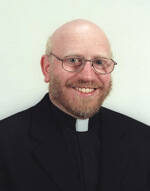With age comes wisdom. I am old enough now to derive hearty consolation from this adage. Yet I am actually far more confident in the truth of another correlation regarding what to expect as we mature: With age comes an appreciation for the inevitability of disagreement.
As a young person, I was always rather surprised when anyone dared disagree with me. On just about every topic (the superiority of favorite foods and teams seemed particularly important in my teen years) the truth seemed self-evident. How could anyone be so impertinent as to dispute my claims?
A few decades further along life’s journey, I have reversed my expectations entirely. I am now quite surprised any time anybody agrees with me—about practically anything. Seeing eye to eye with someone is a pleasant surprise, but certainly a surprise. The older I get, the more disagreement seems endemic, even ubiquitous.
There is never a lack of public issues to illustrate this truth. Headlines generated in just the past few weeks raise these three sets of controversial questions:
1. How should we evaluate Israel’s deadly May 31 attack on the relief flotilla bound for Gaza? Did those ships constitute a peaceful humanitarian mission or a threat to Israel’s security?
2. Is the United States justified in using unmanned drone aircraft to destroy suspected terrorist targets in Afghanistan? Or does an increased risk of harming civilians render this form of warfare objectionable?
3. Are Catholic dioceses justified in excluding from their schools children being raised by same-sex couples? How do such children, as well as their classmates, experience the challenges created by their potentially awkward attendance?
You have probably engaged in heated conversations over these and similarly vexing issues. There is no silver bullet for resolving deep disagreement on weighty matters, but let me propose two guidelines for dealing with clashing opinions.
First, no progress is likely unless all dialogue partners are committed to probing the actual facts of the matter. Engaging in uninformed “data-free analysis” practically guarantees that debates will shed more heat than light. It is impossible to sort out the interplay of competing values unless we first study precisely how they conflict.
Notice how the second question appearing under each of the three issues introduced above moves us from snap judgments toward a stance of openness to empirical information. Responsible observers gather detailed data before drawing informed conclusions about what course of action is advisable. Satisfactory conclusions always reflect more than a venting of our punitive indignation. While we are all entitled to our opinions, we do not get to make up our own private facts.
Second, do not be satisfied with an initial impasse. It is tempting, as soon as we detect disagreement, to fall back upon the often lazy stance of “agreeing to disagree.” But true solidarity with dialogue partners entails probing facts and testing arguments together in the intellectual tradition best exemplified by the great John Courtney Murray, S.J. Democratic politics benefits greatly from a commitment to the Catholic brand of social anthropology, which supports thoroughgoing human relationality and the broadest version of solidarity. Catholic social teaching is not satisfied with a stance of shallow toleration and neither should participants in our pluralistic polity.
Further guidelines for managing disagreement are matters of common sense and good manners. Avoid name-calling and unfair caricaturing of opponents, since these poison the waters of dialogue. Distinguish between deep-seated and surface differences. Respect the goodwill and assume the good faith of all participants in debates. Attempt to articulate the basic sources of disagreement, and make every effort to work around them.
A novelty sign once graced the desk of a mischievous Jesuit administrator: “Hire a teenager or two, while they still know everything.” While the teen mind may revel in the illusion of certitude, we older but wiser folks often find ourselves grappling with the reality of endless disagreements, including those festering within our own minds. One mark of true maturity is facing up to differences and establishing prudent ground rules to manage conflicts of opinion.









And then Fr. Lombardi added some of his own observations as to successful communication by the Holy See. These included (a) having a positive attitude towards the other, towards those different from us,; (b) highlighting first and foremost the beauty of Christian life; (c) trusting in reason and having patience, (d) telling the truth with clarity as well as simplicity - and avoiding ambiguity, intentional concealment or even reticence in dealing with the truth, and (e) being yourself.
Fr. Massaro reminded me about Fr. Lombardi's speech. In both instances, stellar thoughts are being shared. We Catholics have the opportunity to participate in the world with the benefit of values taught by Christ and His Church as well as the graces of life in communion with Divine Providence. It may seem unduly simplistic but living in love and truth in this world makes us fruitful. My prayer is that we not waste the opportunities and values given to us.
1. How can there be debate on a moral theology and controversial Church teaching when the Pope determines such teaching is definitive and irreformable?
2. Does each member of the Body of Christ, clerical and laity, have a responsibility, duty or right to question definite and irreformable Church teachings based on their informed consciences?
3. What mechanism should be used to hold accountable Bishops of the Church who allow two different teachings to exist on the same subject (e.g., Humanae Vitae; a Priest's pastoral guidance and the Church's official teaching)? What is the best way that dissagreements over the moral responsibility to teach the full truth by Bishops and Priests be brought forward for debate and resolution?